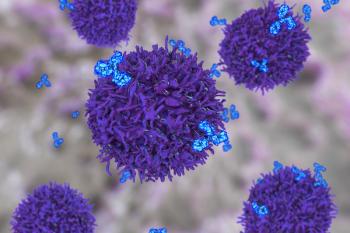
Psychosomatics
Latest News

Latest Videos
Podcasts
CME Content
More News

"In regard to psychiatric hospitalizations, the principles of ethics are imperative in determining how to proceed in each case."

The patient’s autonomy: a guiding principle.

"My attitude toward The Sixth Sense shifted when I realized that I had been treating a patient whose death date was set before our appointments began..."

Descartes said that if you want to know the mind, the only place to start was in the dissecting room.

Psychiatrists are physicians first...

Here’s why this is important.

A conference poster shared an unusual case of hallucinations.

How can telehealth help academic psychiatry departments improve administrative efficiency and expand their clinical services?

In this CME, review the pathophysiology of anti-N-methyl-D-aspartate receptor encephalitis.

8 in 10 physicians believe the United States cannot improve health outcomes or reduce health care costs without addressing social factors that affect patient health.

In overdose, cyproheptadine may cause central nervous system depression and sedation, as well as anticholinergic syndrome.

When therapists are terminally ill, should they err on the side of self-disclosure or silence?

For American Heart Month, catch up on all the latest in psychocardiology.

What can you do to support your patient's heart health?

The specialized device is being studied for patients receiving inpatient care for acute myeloid leukemia.

Delirium: an underrecognized, underdiagnosed medical condition.

In this CME article, learn more about the controversies surrounding Lyme disease diagnosis and treatment, and common neuropsychiatric presentations of and treatment options.

Why are psychotherapeutic interventions crucial in the treatment of GAD and anxiety disorders in general?

This issue highlights the care, concern, and cautions in providing effective and thoughtful treatment to patients.


This case presented as part of the Poster Presentations at the 2021 NEI Congress is a good reminder of the importance of taking a thorough history.

A poet's reflections on COVID-land's relentlessness grip on society...

A patient, faced with a lung cancer diagnosis and the fear of death, goes through the stages of grief. How can you as clinicians lead them through?

A new research study, based on over 800,000 mothers and children, tests the hypothesis.

What psychiatric illnesses are most prevalent among veterans? And how can clinicians help them overcome obstacles to care?












